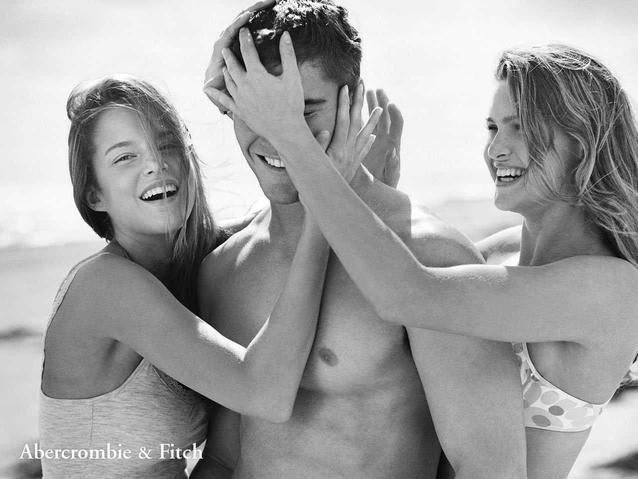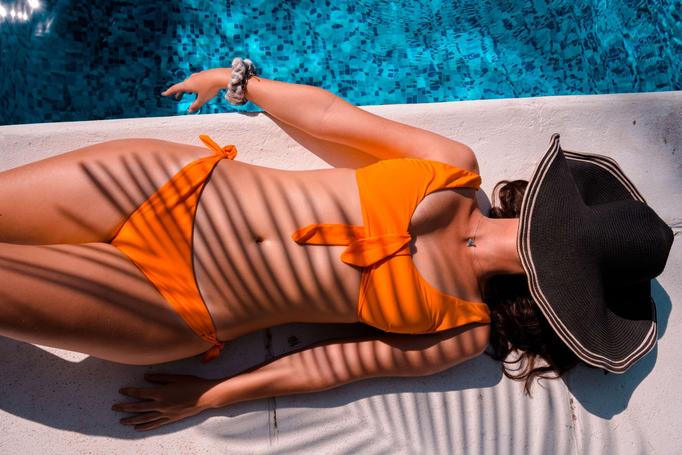Abercrombie does not make big sizes and does not want large and ugly customers.And all these French brands that stop at 44?
The buzz is great on the internet: indeed, everyone pretends to discover that the brand Abercrombie & Fitch does not sell women's clothing over 40. The brand's CEO Mike Jeffries admitted in 2006, so 7 years ago, that the brand does not want fat people or fat people in its stores. ugly people, so as not to devalue the brand in the eyes of its target customers. Of course, we are going to detail all this, but, when you think about it, isn't it quite simply admitting what we all know: even if 40% of French women wear 44 and more, many brands, even French such as ETAM or Pimkie, also knowingly ignore this market. Easy to take on the bad American Abercrombie, but most French brands, what are they doing on their side?
During this bridge weekend of May 8, the news is very flat. As a result, great happiness for the journalists, a somewhat heated controversy arises: in a book which has just been released in the USA (The New Rules of Retail - The new rules of distribution), the author Robin Lewis affirms that the Abercrombie brand refuses to sell plus size clothes, in order to keep a "cool" image. She says the brand makes no secret of not liking big or ugly things (see the interview here: Abercrombie & Fitch refuses to make clothes for large women).
Thus, in 2006, Abercrombie CEO Mike Jeffries claimed that the brand only targets "cool kids", young people who are popular, beautiful and athletic. It is indeed on this image that the brand communicates, with its slender young girls and its muscular boys. Thus, at Abercrombie, it is impossible to find clothes in sizes 40 or more for women. Of course there are a few XL and XXL for men, but it's only to dress "hefty and sporty" boys, not "fat" ones.

This is not ignoring the reality of the market, but knowingly trying to dress only a segment of the population. It's voluntary marketing segmentation, but is it discrimination? The line is thin, of course. But anti-fat discrimination is perhaps too important a subject to mix it up with the fact of being able (or not) to dress in a brand that sells polo shirts for €100 each.
Of course, the words of this CEO are perhaps shocking. But when you are (really) tall, even just a 46, how many times have you not suffered in France the unpleasant look of a shop assistant who shouts in your face that there is no nothing for you? And all those French brands that stop at 44, like Etam or Pimkie, and where your girlfriends can dress and you can't?
In the fashion world, there are many brands that don't want to dress fat people and don't want to see them in their stores. Likewise, there are plenty of fashion journalists who abhor fat, plus-size fashion and have simply decided not to talk about it.
Rather than dealing with brands that ignore us, let's ignore them ourselves and prefer to talk about brands that have plus size lines or that simply go up in size, such as:
- ASOS Curve
- Coleen Bow
- H&M+
- Castaluna and its many brands
And also all the brands present in our directory of online clothing stores for curvy women.
What do you think? Leave your comments at the bottom of this article!
Also read here some comments from readers of our Facebook page: https://www.facebook.com/thebodyoptimist








